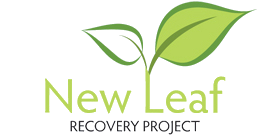Living With Someone With an Addiction

Living with someone with an addiction can lead you to a rollercoaster of emotions. When you live with other people, there are always going to be accommodations for the other person’s needs, in order to create a harmonious and safe environment. However, when it comes to living with someone with an addiction, creating this balanced and enjoyable household comes with a lot more challenges.
Understanding addiction and its potential consequences on your family and relationships is the first objective. This still holds even if your loved one is making a full recovery. Ensuring you know how to deal with them and care for yourself at the same time is severely important.

Understanding Addiction
It’s critical to first comprehend the causes of the addiction itself in order to comprehend how to live with someone with an addiction.
The disease of addiction results in alterations to the brain. Dopamine receptors become active in addicts and signal the brain that drugs are rewards. As the brain grows accustomed to the material, it adapts and evolves over time.
Addiction is regarded as a chronic, or long-term, condition because it causes such profound changes in the brain. Even when your loved one is aware of the negative effects of their substance use on their physical, emotional, and financial well-being, the condition may grow so strong that it becomes challenging for them to maintain control over it.
Addiction is treatable though, and it is important to remember that. If you need help, visit our website for more information.
How Living With Someone With an Addiction Affects the Household
Addiction is hard on both the families of the addict and the addict themselves. Effects on the household or living environment can accumulate in many ways, such as:
- Stress
- Depression
- Anxiety
- Anger
- Embarrassment
- Guilt
- Financial problems
- Inconsistencies in schedules and routines
- Danger of life
How to Cope
It’s important to acknowledge that no one can cause someone to have an addiction, and also, it’s virtually impossible to ‘fix’ them.
Taking measures to ensure you stay safe both mentally and physically is necessary when living with someone with an addiction, and to also know there is help out there if you need it. Consider the following steps:
Set boundaries: Set clear guidelines and requirements. Even better, make a list. If your loved one crosses any of these lines, give them explicit repercussions.
Ensure Financial Safety: Your loved one may go to many lengths to obtain money so they can purchase the drug to which they are addicted. You may want to consider how your own financial security can be maintained.
Keep you and your family safe: This is crucial when living with someone with an addiction, especially if you have more susceptible family members, such as young children, elderly relatives, or pets. Make sure there are established boundaries and norms for the home. You might need to ask your addicted loved one to temporarily leave the house if safety starts to become a concern.
Encourage treatment: Suggest a treatment plan for your loved one, especially if individual therapies haven’t been effective in curing the illness. Rehabilitation, psychotherapy, and nutrition advice are some examples of this, and if taken up, can be a lifeline for those living with someone with an addiction.
Join a support group: You’re not alone in this. There are many online and offline support organisations that cater to the requirements of individuals who care for an addict. Discover more of these on our website.
Prepare a response strategy: This can entail having support from friends, relatives, therapists, or, in dire circumstances, the police. Addicts are not necessarily harmful in and of themselves. However, if someone is severely intoxicated, they could become hazardous.
Remember…
Everyone who cohabitates with an addict may find it challenging. In addition to assisting your loved one with addiction treatment, it’s crucial to maintain your family’s safety. This can be done with some forethought and boundaries.
Visit our website’s family support section if you’re struggling with living with someone with an addiction to see how New Leaf Recovery can assist. We are here to support you.
Receive a Free Call Back
"*" indicates required fields
Our Complete Recovery Journey - from your initial enquiry, all the way through treatment and beyond into ongoing support, New Leaf Recovery are there to guide and support you.
New Leaf offers a complete journey of treatment - from initial detoxification and rehabilitation to ongoing support, including aftercare, family support, and beyond into long-term recovery.
Getting the right accommodation enables us to provide the right backdrop for our recovery methods. Any form of rehabilitation needs to happen in a safe, comfortable, secure and friendly environment.
Receive a Free Call Back
"*" indicates required fields










